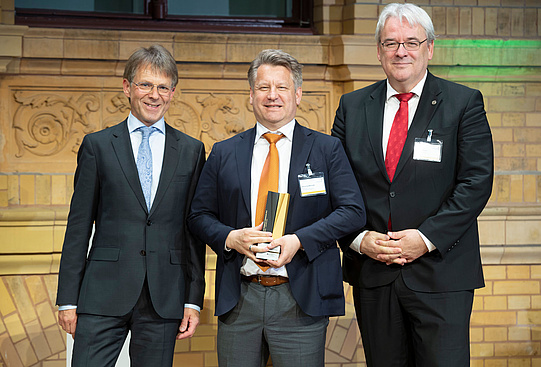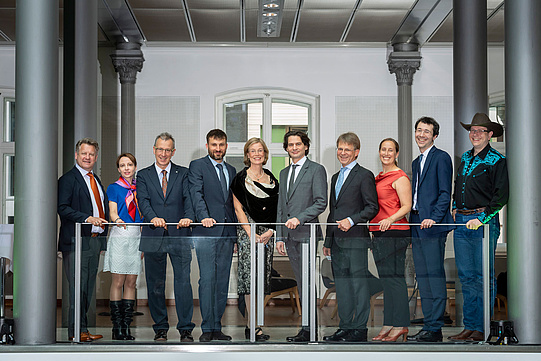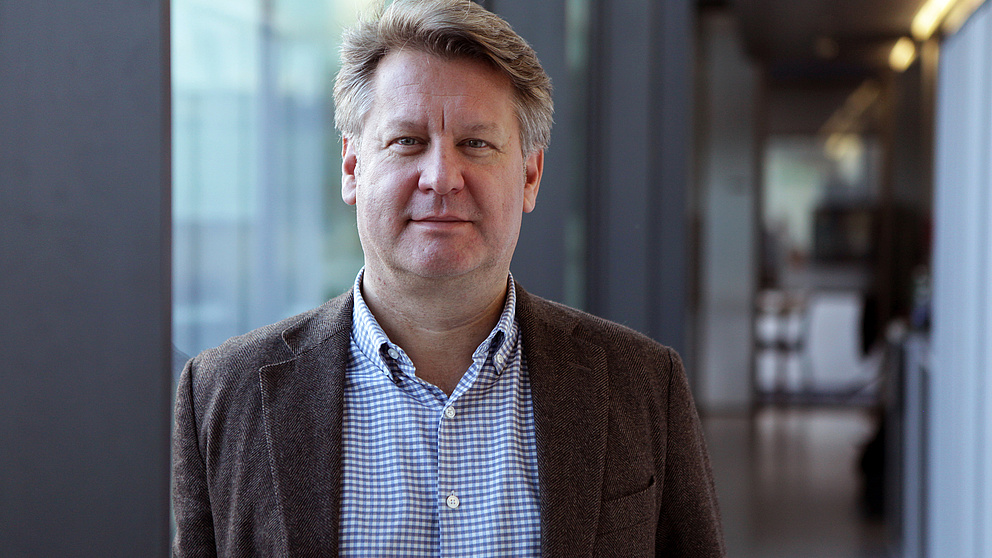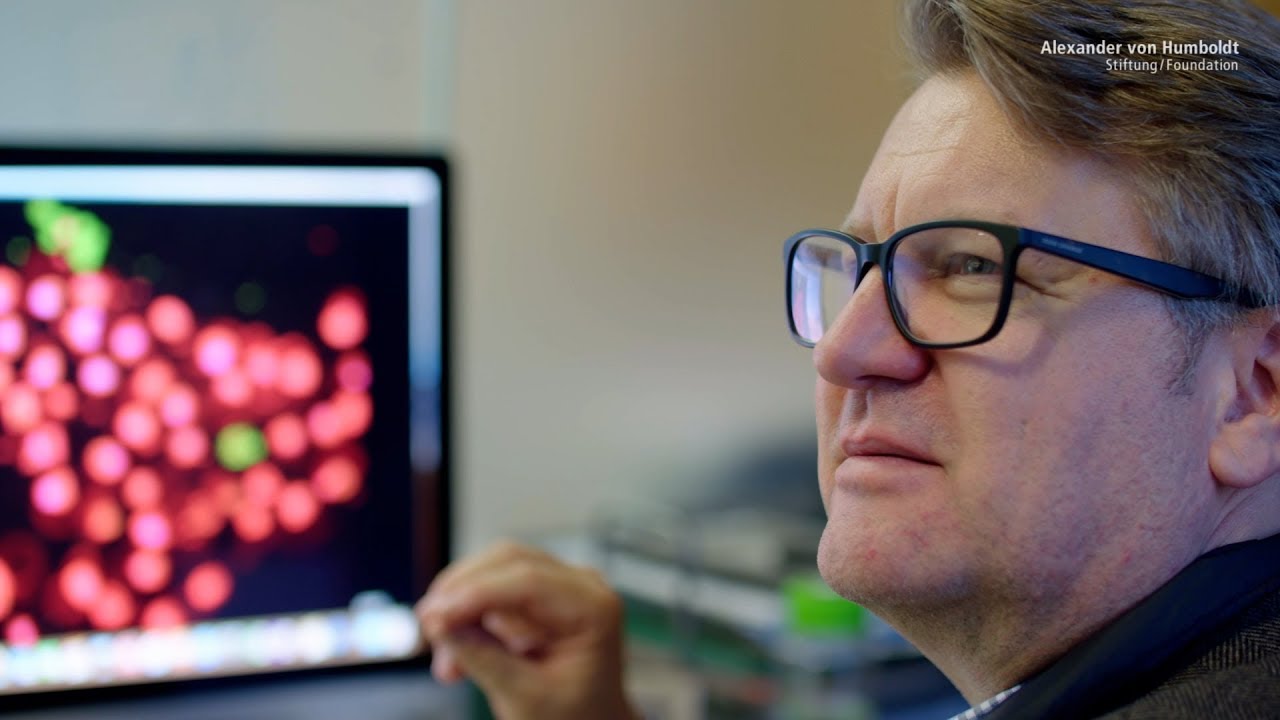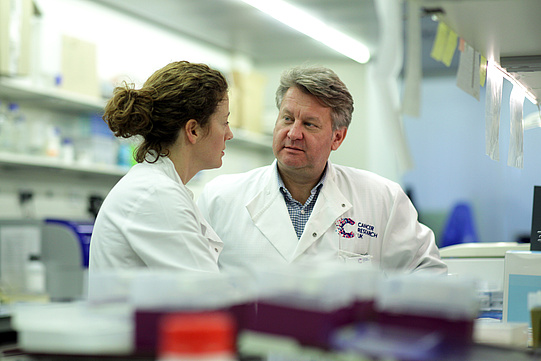Jump to the content
- {{#headlines}}
- {{title}} {{/headlines}}
Biochemistry / Immunology
In a human adult, billions of cells kill themselves off every day. Programmed cell death is a self-protective mechanism: it is triggered, for example, when cells are irreparably damaged. Normally, the body then produces new cells so that there is a balance between cell death and cell propagation. Disturbances in these mechanisms are thought to be a crucial factor in the development of cancer and autoimmune diseases. This is where the research of biochemist and cancer researcher Henning Walczak comes in. Amongst other things, he has demonstrated the role of various proteins as receptors in controlling cell death. Insights of this kind lay the foundations for new approaches to therapy: if it is possible to specifically activate the suicide programme, known as apoptosis, cancer cells will, for example, kill themselves off without damaging the surrounding cells. The precise molecular reasons for these effects are, however, still the subject of research – in some cases, they can also work the other way around and cause the cancer to spread.
Brief bio
Born in Germany, Henning Walczak is Professor of Cancer Biology at University College London (UCL), United Kingdom, and Scientific Director of the Cancer Research UK-UCL Centre. He previously conducted research at the German Cancer Research Center in Heidelberg and also worked for the biotech company Immunex Corportation in Seattle, United States. Together with the Heidelberg immune geneticist Peter Krammer he founded the biotech firm Apogenix, which he still advises. In 2007, Walczak transferred to London, initially to Imperial College and then to UCL. He has received numerous major awards, including an ERC Advanced Grant and the Wellcome Trust Senior Investigator Award. In June 2019 he took up his position as a Humboldt Professor at the University of Cologne.

Kontakt
Presse, Kommunikation und Marketing
Tel.: +49 228 833-144
Fax: +49 228 833-441
presse[at]avh.de
Photos and videos
